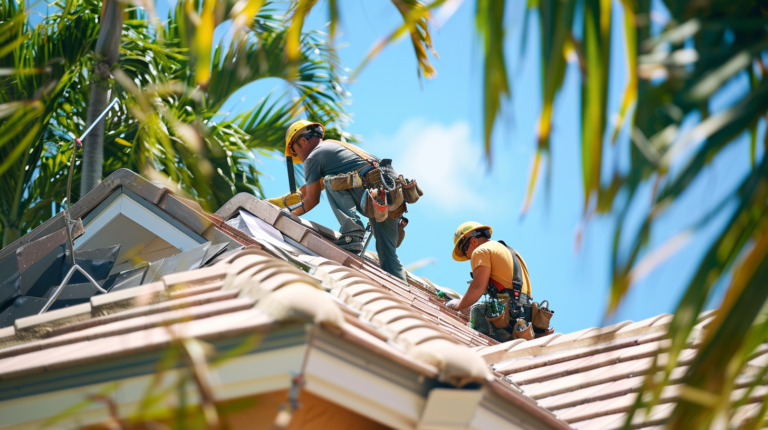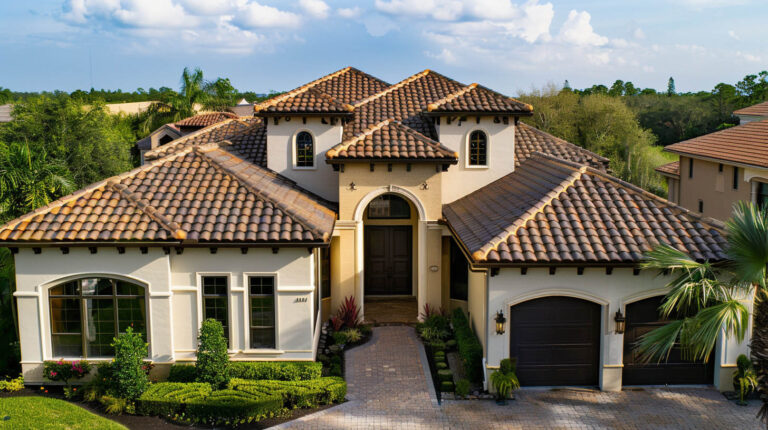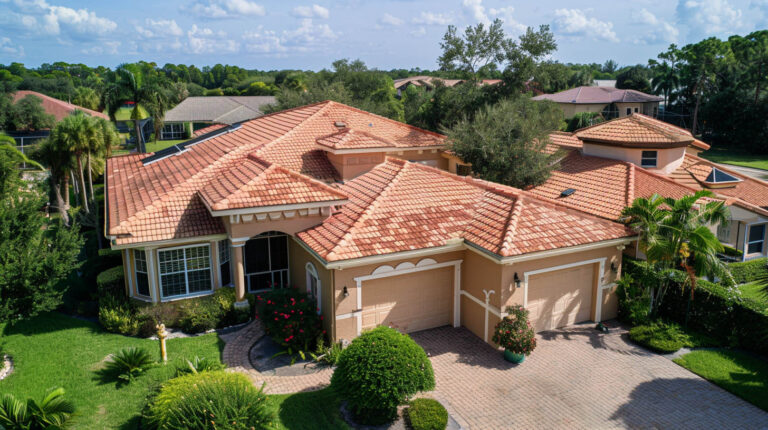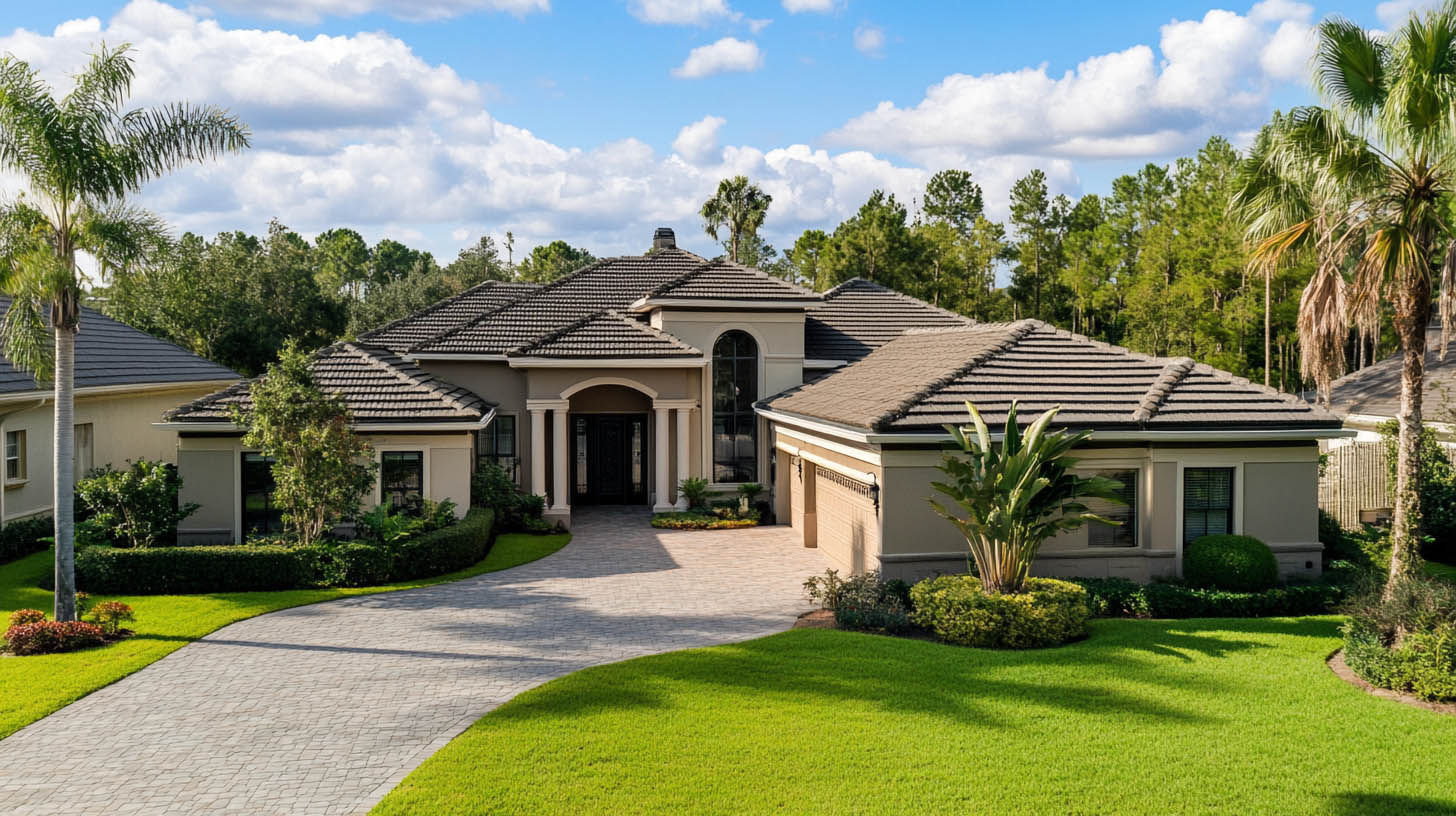
Blog
Understanding Roof Pitch: What Jacksonville Homeowners Need to Know
The pitch, or slope, of your roof significantly influences the performance, appearance, and cost of your roofing system. Whether you’re considering a roof replacement or exploring materials for a new build, knowing your roof pitch is essential for selecting suitable materials and planning for long-term maintenance. Avenue Roofing provides insights to help Jacksonville homeowners make informed roofing choices.
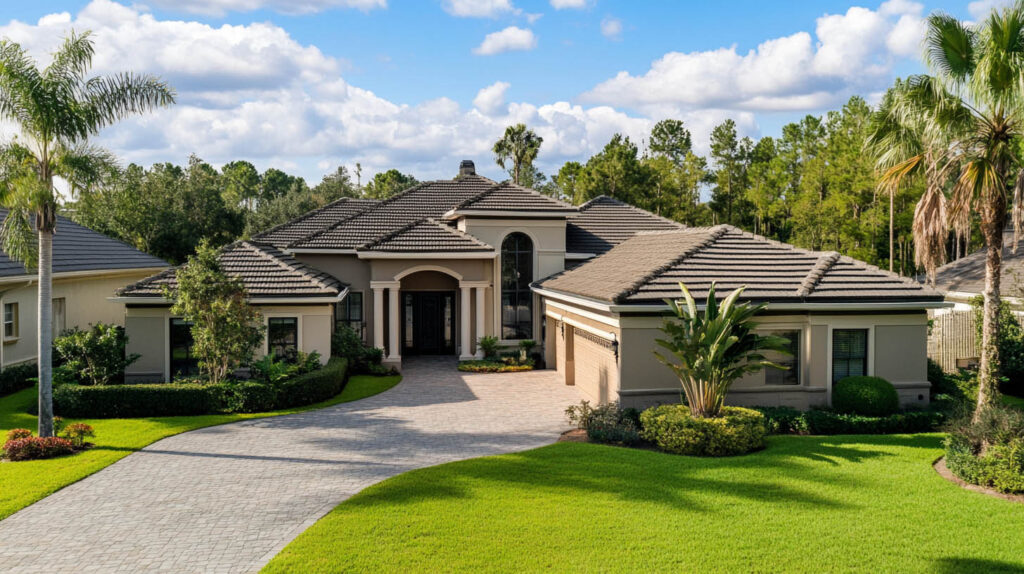
What is Roof Pitch?
Roof pitch refers to the steepness of a roof, commonly expressed as a ratio that indicates how much the roof rises vertically for every horizontal foot. For example, a 4:12 pitch means the roof rises 4 inches for every 12 inches horizontally. The pitch impacts everything from water runoff to the roof’s aesthetic, as well as the type and cost of materials required.
Common Roof Pitch Types
- Low-Slope Roofs (Less than 3:12): Often seen in modern architectural designs, low-slope roofs require special attention to drainage to prevent water pooling.
- Medium-Slope Roofs (4:12 to 6:12): Common in traditional homes, these roofs balance effective drainage and aesthetics.
- Steep-Slope Roofs (Above 6:12): Ideal for areas with heavy rainfall, these slopes ensure fast water runoff and reduce the likelihood of water damage.
Did You Know? Steep-slope roofs typically have a longer lifespan than flat roofs, as their natural drainage helps reduce the accumulation of water and debris.
How Roof Pitch Affects Roofing Costs
The steeper the roof pitch, the more materials and labor-intensive the installation becomes. For instance, steep slopes require additional materials to cover the increased surface area and specialized equipment for secure installation.
Best Roofing Materials Based on Pitch
Certain roofing materials are better suited to specific pitches, making material selection critical to ensuring long-term roof performance:
- Asphalt Shingles: Versatile and suitable for low to steep slopes, making them popular for residential projects.
- Metal Roofing: Ideal for medium to steep slopes, as metal roofs provide durability and are resistant to extreme weather.
- Tile Roofing: Primarily used on steep slopes, tiles require solid support due to their weight and offer a distinct aesthetic.
Calculating Your Roof Pitch
If you’re unsure of your roof’s pitch, there are two common methods for measurement:
- Using a Pitch Gauge: This tool quickly calculates the angle of the roof and provides an accurate pitch ratio.
- Measuring from the Attic: Measure the vertical rise of your roof over a 12-inch horizontal span to calculate the pitch.
Most home blueprints also specify the roof pitch, making it easy to verify without on-roof measurements.
Choosing the Right Contractor for Your Roof Pitch
Selecting an experienced roofing contractor is essential, as they can accurately assess your roof’s pitch and recommend materials suited to Jacksonville’s climate. Avenue Roofing specializes in working with various roof pitches and materials, offering Jacksonville homeowners reliable and durable roofing solutions.
Frequently Asked Questions (FAQs)
1. Does roof pitch affect water drainage?
- Yes, a steeper pitch improves drainage, reducing the risk of water-related damage.
2. Are certain materials better suited to specific pitches?
- Yes, for example, tile is best suited for steep slopes, while asphalt shingles can adapt to a range of pitches.
3. Can I change my roof’s pitch?
- Changing the pitch is possible but involves significant structural adjustments and may not be cost-effective for existing homes.
4. How does pitch impact roof maintenance?
- Steeper slopes generally require less debris removal, as gravity aids in natural cleaning, though they may be harder to access.
5. Is a low-pitch roof more susceptible to leaks?
- Yes, low-pitch roofs are more prone to water pooling, which increases the likelihood of leaks and requires regular inspections.
Conclusion
Understanding roof pitch helps Jacksonville homeowners make informed decisions regarding materials, maintenance, and overall cost. With guidance from experts like Avenue Roofing, you can ensure that your roof’s pitch suits both your home’s design and Jacksonville’s coastal climate.
To learn more about Jacksonville’s summer roofing issues, click here.
